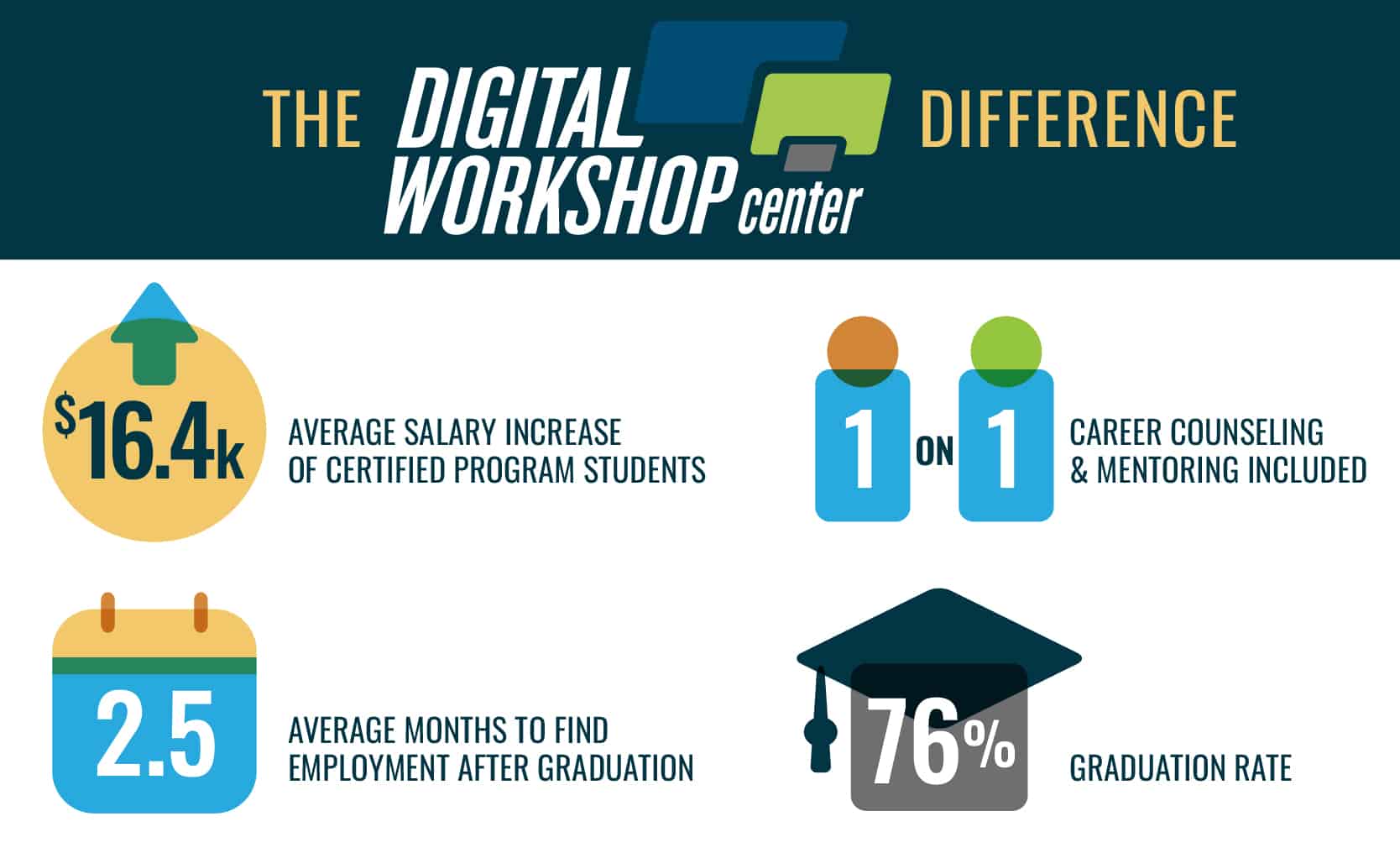New Year’s Resolutions before the New Year
The Last few Months—A Time for Reflection & Growth
Review Your Accomplishments and Identify Growth Areas
New Year Discount: $1,500 off ANY DWC certificate program!
Set SMART Goals for the Next 2 Months & for New Year’s Resolutions
- Specific: A goal should be clearly defined, answering what, why, and how. Rather than setting a vague aim like “improve at work,” specify what that improvement actually looks like, such as “develop advanced Excel skills for data analysis.”
- Measurable: A goal needs criteria for tracking progress and measuring success. Instead of saying “learn Excel,” set a specific goal like “complete three online Excel courses.”
- Achievable: While goals should challenge you, they should also be within reach given your current resources. Setting realistic steps helps prevent discouragement and builds momentum as you make progress!
- Relevant: Your goals should align with your larger ambitions and values. Ask yourself, “Is this goal truly beneficial for my personal or professional growth?”
- Time-bound: Every goal needs a deadline. A time frame like “finish by December 31” helps maintain focus.
Applying the SMART framework can help you make meaningful realistic New Year’s Resolution goals and make progress even in a short period. Here are a few examples of short-term SMART goals to work on before the year ends:
- Develop a New Skill: Complete a beginner coding course in Python by December 22nd to boost technical knowledge and prepare for a more advanced course next year.
- Build a Professional Network: Attend two networking events and reach out to five industry connections by the end of November to build potential relationships in the tech industry.
- Enhance Time Management: Use a time-tracking app daily now until the end of December to identify areas for better productivity, then implement a scheduling system for next year.
Each of these goals is specific, measurable, and time-bound, making it easier to track progress and feel a sense of accomplishment as you wrap up the year!
Develope a Learning Routine
Career Goals and Tech Certifications: Mapping out Success
Click here to dive in! ➡
- Create a Weekly or Monthly Learning Routine: Establishing a consistent schedule is key to making progress, even when time is limited. Setting aside a few hours each week or dedicating a specific day each month to learning can help you build momentum. For example, you could dedicate Sunday mornings to taking an online course or spend an hour each Wednesday attending a live or recorded webinar. Consistency is more important than spending long hours; even short, focused sessions add up over time.
- Use Holiday Downtime Strategically: The holidays often come with some downtime—whether it’s a few days off work or a quiet morning at home. Use this time strategically to review what you’ve learned, set new goals, or catch up on a course module. By planning ahead, you can make the most of any quiet moments to keep building your skills.
- Leverage Digital Resources: Online courses and webinars are perfect for busy schedules since they’re often available on-demand and can be accessed at any time. Consider our Professional Growth Webinar Series, which covers key topics such as resume writing, technical skills, and career growth strategies. With these accessible sessions, you can gain practical insights that directly support your professional journey—all without needing to commute or set aside hours at a time.
- Find Inspiration in Success Stories: Hearing about others’ journeys can keep you motivated when your schedule is tight. Check out the Alumni Success Story Series on DWC’s YouTube channel, which highlights how former students transformed their careers by making time for learning, even amidst their busy lives. These stories can serve as a reminder that every bit of effort counts, and consistent learning can lead to meaningful career changes.
- Prioritize and Protect Your Learning Time: During busy seasons, it’s easy to let other obligations take over. Block out time on your calendar for professional development and treat it like any other important appointment. Let family or colleagues know about this time so they can support your commitment. Protecting even a small amount of time for learning each week can help you stay on track.
By following these tips, you can keep your professional development on track during the holidays, ensuring that you head into the new year with a solid foundation. Even small steps add up, and with resources like DWC’s webinars and inspiring alumni stories, you’ll have the support and motivation needed to keep pushing forward.
Plan for the New Year’s Resolutions—First Quarter Programs at DWC
Why you should be upskilling in 2025
Professional Development Training: Self Paced Learning or Live Instruction?

New Year Discount: $1,500 off ANY DWC certificate program!
Ready to elevate your skills? Save $1,500 on ANY Q1 certificate program! Most Q1 programs start January 2025. Simply attend an info session and submit your application with the code UPSKILL to take advantage of this limited-time offer.

